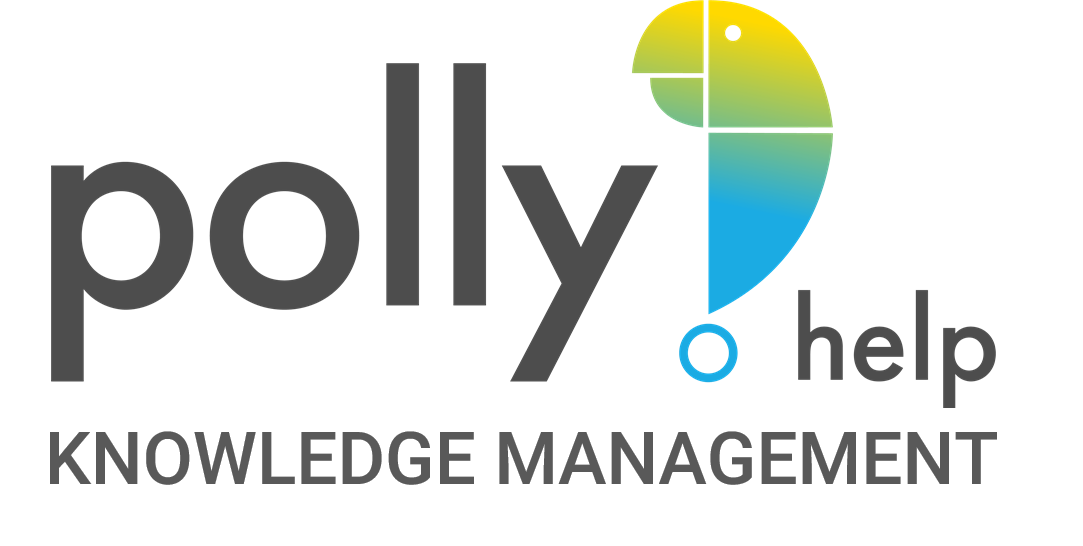In the age of information overload, knowledge management software plays a pivotal role in organizing the disarrayed types of knowledge distributed through emails, chat threads, content management systems, and more importantly, the undocumented expertise of employees’ knowledge. Organizations, regardless of their size, can reap the benefits of implementing intuitive and user-friendly knowledge management systems to retain and share information efficiently, ensuring that employees and the organization can achieve their work objectives. By leveraging knowledge management solutions, businesses can transform their scattered pieces of information into tangible value, thereby achieving a significant competitive edge.
Key Takeaways
- Knowledge management software helps organize and centralize disparate pieces of information within a company.
- Efficient knowledge sharing platforms facilitate collaboration and enhance decision-making processes.
- Integrating both tacit and explicit knowledge is crucial for a successful knowledge management system.
- Well-implemented knowledge management solutions empower employees and foster a culture of continuous learning and innovation.
- Utilizing knowledge management systems can lead to increased productivity, reduced operational costs, and a competitive advantage in the marketplace.
Understanding Knowledge Management and its Business Impact
Knowledge management is a vital component in the functioning and success of any organization, encompassing a set of practices aimed at harnessing intellectual assets and transforming them into organizational value. In this section, we will delve into the definition of knowledge management, discuss how knowledge scatters throughout an organization, and analyze the process of converting knowledge into value.
The Definition of Knowledge Management
Knowledge management refers to a strategic business initiative that focuses on the systematic management and utilization of an organization’s intellectual assets. It fosters a collaborative approach for creating, capturing, organizing, accessing, and applying knowledge. With proper knowledge management practices, businesses can streamline their information access, strengthen inter-employee collaboration, and enhance the customer experience.
How Knowledge Scatters in an Organization
Organizations create and accumulate a massive amount of data and knowledge, which can quickly become scattered among various documents, systems, and people. This fragmentation often results in inefficient access, poor decision-making, and a loss of valuable knowledge upon employee departure. Implementing a comprehensive knowledge management solution mitigates these risks by consolidating and preserving the intellectual assets of the organization.
Transforming Knowledge into Organizational Value
To maximize the value of accumulated knowledge, organizations need to focus on the conversion of knowledge into actionable insights and strategies. This transformation is achieved by identifying important patterns, extracting critical information, and using it to inform decision-making and innovative solutions. By reinforcing a culture of continuous improvement and knowledge sharing, a well-implemented knowledge management system propels companies to stay ahead of the curve and adapt to remote work environments.
Barriers to Effective Knowledge Management
While the potential benefits of implementing a strong knowledge management strategy are well acknowledged, there are numerous barriers that may interfere with its effectiveness within an organization. One key issue organizations face is preserving vital organizational knowledge when experienced employees leave the company. The lack of formal knowledge-transfer mechanisms can lead to corporate brain drain, negatively impacting the organization’s ability to stay competitive in the long run.
- Difficulties in Intellectual Property Protection
- Challenges in Establishing Information-Access Permissions
Additionally, an organization’s culture has a significant impact on whether knowledge management will be successful. If the culture does not actively promote or simplify knowledge sharing, employees may be hesitant to contribute their insights to the collective pool of information. This could potentially cause the organization to miss out on valuable opportunities for growth and innovation.
An organization must also address the challenges surrounding intellectual property protection. With the widespread adoption of digital technologies and an increase in remote work, protecting the organization’s information from unauthorized access and misuse has become a critical concern. Ensuring that the system is secure and properly authenticated is critical for maintaining trust and goodwill among employees as well as safeguarding the organization’s valuable assets.
Another challenge organizations face is developing a consistent policy for information-access permissions. This often requires striking a delicate balance between providing employees with adequate access to useful information and ensuring the information remains protected from unauthorized viewers.
By recognizing and addressing these barriers, organizations can capitalize on effective information management strategies, allowing them to harness the full power of their collective intellect and drive innovation forward.
Strategies for Capturing Tacit and Explicit Knowledge
For organizations aiming to harness the full potential of their knowledge assets, understanding the nuances between tacit and explicit knowledge is of paramount importance. Effective knowledge management strategies must consider both types of knowledge and employ methods conducive to sharing this valuable information. Let’s examine the distinguishing characteristics of these knowledge forms and explore the best practices for their capture and transfer.
What are Tacit and Explicit Knowledge?
Explicit knowledge is documented and easily shared, typically featuring items such as manuals, research reports, and written procedures. This form of knowledge is easily accessible and simplifies knowledge transfer through digital or physical mediums.
On the other hand, tacit knowledge comprises unwritten skills, experiences, and insights that an individual may not realize could benefit others. This type of knowledge is harder to capture and transfer, as it often resides in the minds of those who possess it and tends to be context-specific and intuitive in nature.
Best Practices for Knowledge Capture and Transfer
Breaking down informational silos and fostering a culture of collaboration and knowledge sharing is critical for effective knowledge management. Below are some best practices to help organizations capture and transfer both explicit and tacit knowledge:
- Encourage documentation: Provide employees with easy-to-use tools and systems that simplify the documentation process. Encourage the habit of documenting their personal insights, experiences, and best practices to capture tacit knowledge that can benefit others.
- Promote a culture of knowledge sharing: Foster an organizational culture that values and rewards employees for sharing their knowledge and expertise. Regularly recognize and celebrate instances of successful knowledge transfer to reinforce its importance.
- Implement mentoring programs: Pair employees with experienced mentors, where tacit knowledge can be shared through direct interaction, observation, and practice. This approach helps build relationships and transfer valuable insights to the next generation of organizational leaders.
- Integrate systems: Ensure the enterprise knowledge management platform integrates seamlessly with other information and collaboration tools. This approach helps keep data up-to-date and accessible while enabling employees to find what they need from a single source of truth.
In conclusion, effectively capturing and transferring tacit and explicit knowledge is instrumental in maximizing organizational potential and enhancing overall business performance. By implementing the aforementioned strategies, organizations can foster stronger collaboration, drive innovation, and stay ahead of the competitive curve.
Knowledge Management Software as the Keystone of Information Management
Knowledge management software plays a crucial role as the central component in the quest for efficient information management within a business. By leveraging a modern knowledge management platform, organizations can centralize their intellectual assets, streamline access to information, and ensure secure storage and management of private knowledge base data.
Content management systems and SaaS software provide a suite of tools designed to support efficient information management in businesses. One such solution is Polly.help, which enables a standardized procedure for information access, ensuring users can easily locate and utilize relevant data to meet their business objectives.
When information is consolidated in a unified system, these knowledge management solutions simplify and amplify the potential of knowledge-driven innovation. Below, we explore some key benefits of utilizing a knowledge management platform in your organization:
- Enhanced intranet search capabilities
- Improved collaboration and knowledge sharing among employees
- Up-to-date and centralized documentation
- Increased security measures for sensitive information
- Ability to access information remotely and on-the-go
In conclusion, a comprehensive knowledge management software serves as the keystone for managing an organization’s information and intellectual assets effectively. By consolidating data into a unified knowledge management platform, businesses can protect valuable information, streamline processes, facilitate collaboration, and ultimately drive innovation.
The Role of Knowledge Management in Fostering Innovation
As organizations strive to maintain a competitive edge, it is crucial to foster a culture of innovation. One of the most effective ways to achieve this is by leveraging the power of knowledge management software. By promoting the sharing of both explicit and tacit knowledge, knowledge management software serves as a foundation for innovation and enables businesses to create and implement novel solutions. In this section, we’ll explore how a robust knowledge management system can facilitate collaborative problem-solving and encourage a culture of continuous improvement, both of which are critical to driving innovation.
Facilitating Collaborative Problem-Solving
Effective problem-solving requires diverse perspectives and the blending of shared experiences. In a team-focused environment, this is where knowledge management software shines. By providing access to a wealth of information and resources, collaboration tools create an environment that invites employees to brainstorm, discuss, and innovate. Team members can draw on the collective knowledge of their colleagues, combining expertise from different departments and backgrounds to craft unique and innovative solutions.
Encouraging a Continuous Improvement Culture
A knowledge-sharing culture is one that fosters continuous learning and improvement. When employees have access to the right information and resources, they are better equipped to adapt to new challenges and drive change within the organization. Knowledge management software supports a dynamic and progressive operational ethos by streamlining the flow of information, making it easier to identify areas for improvement and implement necessary changes.
Ultimately, knowledge management software plays a vital role in fostering innovation within an organization. By providing the right collaboration tools and nurturing a knowledge-sharing culture, businesses can unlock the full potential of their intellectual resources and create innovative solutions that set them apart from the competition.
Beyond Data Storage: How Knowledge Management Software Enables Decision Making
Knowledge management software extends its functionality beyond simple data storage, acting as an ally in the decision-making process. By rendering data into useful insights and incorporating knowledge into everyday workflows, it empowers organizations to make well-informed decisions in real-time.
From Data to Insight: Empowering Better Decisions
At the core of effective decision-making lies the ability to synthesize and analyze information from multiple sources. Knowledge management software enables users to access a comprehensive range of data, experiences, and key insights from within the organization quickly. This seamless information retrieval translates raw data into actionable insights, ensuring all decisions are grounded in a solid foundation of information. Enterprise collaboration tools facilitate cross-departmental communication and real-time information sharing, further strengthening the decision-making process.
Integrating Knowledge with Workflow: Real-Time Decision Support
In today’s fast-paced business environment, organizations need immediate access to knowledge in order to respond effectively to emerging challenges. Knowledge management software integrates essential information directly into workflows, ensuring users have real-time access to critical knowledge to make informed decisions. This workflow integration helps decision-makers capitalize on opportunities and circumvent potential risks, fostering a proactive approach to problem-solving.
For instance, consider a manufacturing company looking to optimize its production processes. By leveraging knowledge management software, they can access historical production data, market trends, and insights from related departments in real time, ensuring all decisions are made with the necessary context in mind.
- Increased speed and accuracy in decision-making
- Greater visibility and collaboration between departments and teams
- Improved analysis of historical data and trends to inform future actions
- Simplified information retrieval and knowledge integration for immediate decision support
Ultimately, knowledge management software serves as an invaluable asset for organizations aiming to enhance their decision-making process. By providing instant access to crucial information and facilitating workflow integration, knowledge management systems significantly improve the quality and expedience of decision making across all levels of an organization.
Optimizing Onboarding and Training with Knowledgebase Software
Knowledgebase software plays a crucial role in streamlining employee onboarding processes and training programs, making it an indispensable component of knowledge transfer within an organization. By leveraging an intranet-based knowledge management system, new hires are granted immediate access to essential explicit knowledge resources, such as guidebooks and best practices, contributing to a consistent and effective introduction to company operations.
In sync with learning management systems, the knowledgebase supports ongoing employee development, promoting an environment of consistent learning and skill acquisition. To demonstrate how knowledgebase software optimizes onboarding and training processes, consider the following advantages:
- Accelerated information access for new employees
- Reduced time and resources required for training
- Improved employee engagement and performance
- Easier updating and distribution of training materials
- Incorporation of employee feedback for content improvements
Furthermore, an effective knowledgebase also integrates with existing learning management systems, fostering a seamless merger of resources and data for employees. This compatibility is essential for unifying the flow of knowledge and ensuring a complete educational experience.
To summarize, knowledgebase software is instrumental in refining employee onboarding and training processes, resulting in better knowledge transfer and organizational efficiency. By granting new employees rapid access to vital information and facilitating ongoing development, companies can promote an environment of constant learning and growth.
The Competitive Advantage of Streamlined Knowledge Sharing Platforms
In today’s highly competitive business environment, organizations must capitalize on every opportunity to gain an edge over their rivals. One key differentiator can be found in how effectively they implement a knowledge sharing platform. By breaking down informational silos and harnessing their intellectual assets, companies can drive innovation and establish strategic market leadership.
Breaking Down Silos with a Unified Knowledge Base
A unified knowledge base is an essential component of any successful knowledge sharing platform. By consolidating information from various sources, organizations can eliminate the problem of individuals or teams hoarding knowledge, making it difficult for others to access or collaborate. A centralized knowledge base empowers employees by offering unimpeded access to the collective brainpower of the entire company, thus fostering a culture of collaboration.
Leveraging Intellectual Assets for Market Leadership
Intellectual assets are often the core of an organization’s competitive advantage. By harnessing and nurturing these valuable resources through effective knowledge sharing platforms, companies can stay ahead of their competitors. Knowledge management practices, when optimized, facilitate innovation and enable employees to drive strategic leadership within their respective markets. The benefits of this market edge reverberate throughout the organization, propelling sustainable growth and long-term success.
In conclusion, a well-executed knowledge sharing platform not only promotes collaboration within an organization but also confers a significant competitive advantage in the marketplace. By centralizing information and leveraging their intellectual assets, companies are better positioned to drive innovation and revolutionize the way they operate, leaving competitors trailing in their wake.
Knowledge Management System: A Tool for Enhanced Productivity and Efficiency
A Knowledge Management System (KMS) is a powerful instrument for boosting productivity and overall business efficiency. By streamlining access to information, KMS significantly reduces time wastage and operational costs. Furthermore, when employees are empowered with the necessary knowledge and resources, satisfaction and retention rates are positively impacted. Employing a comprehensive KMS ensures not only efficiency gains but also a sustainable competitive advantage.
Reduction in Time Wastage and Operational Costs
Employees often spend valuable time searching for critical information needed to complete tasks or to solve problems. With a well-structured KMS in place, the retrieval of essential data becomes seamless, resulting in reduced time wastage and, consequently, lowered operational costs. By implementing a KMS, businesses can facilitate quick access to information, ensuring maximum productivity and operational efficiency.
Employee Satisfaction and Retention Through Knowledge Empowerment
When individuals feel informed and have access to the required knowledge, they are more likely to be confident in their ability to perform job duties. An environment that encourages knowledge-sharing and collaboration fosters higher employee satisfaction. In-turn, this leads to increased retention rates as valuable employees are more likely to stay within the company. By utilizing a KMS, organizations can create a culture of knowledge empowerment, positioning them for long-lasting competitive success.
FAQ
What is Knowledge Management Software?
Knowledge Management Software is a system that helps organizations manage, organize, and share their intellectual assets effectively. It includes knowledgebase software, document management software, collaboration tools, and more, providing a comprehensive solution for information management and knowledge sharing within a business.
Why is Knowledge Management important for businesses?
Effective knowledge management helps organizations capture, organize, and utilize their intellectual assets, promoting a collaborative approach towards information asset creation and use. With a well-implemented knowledge management system, businesses can streamline information access, improve collaboration, and foster innovation, offering a competitive advantage in the market.
What are the barriers to effective Knowledge Management?
Barriers to effective knowledge management include the lack of formal knowledge-transfer mechanisms, corporate culture that does not encourage or simplify knowledge sharing, and unclear information-access permissions. These obstacles can hinder an organization from fully leveraging its collective intellect to stay ahead of the competition.
What is the difference between tacit and explicit knowledge?
Tacit knowledge comprises unwritten skills and experiences that an individual may not realize could benefit others, while explicit knowledge includes documented and easily shared information, such as manuals and research reports. Effective knowledge management strategies must consider both types and employ methods conducive to sharing this knowledge.
How can businesses use Knowledge Management Software to foster innovation?
By facilitating the sharing of explicit and tacit knowledge, knowledge management software encourages a culture of collaborative problem-solving, where diverse perspectives and shared experiences lead to unique solutions. It also fosters an environment of continuous learning and improvement, enabling businesses to adapt swiftly to new challenges and maintain a progressive operational ethos.
How does Knowledge Management Software enable better decision-making?
Knowledge Management Software turns data into insight, providing easy access to a comprehensive range of information and experiences from throughout the organization. Real-time access to knowledge also facilitates integration with workflows, offering immediate support for decisions required in the dynamic business environment.
How can Knowledgebase Software optimize onboarding and training?
Knowledgebase software helps streamline employee onboarding and training by granting immediate access to essential explicit knowledge such as guidebooks and best practices. It works in tandem with learning management systems to support ongoing employee development, promoting a consistent learning environment and skill acquisition.
What competitive advantages can be gained from streamlined Knowledge Sharing Platforms?
Streamlined knowledge sharing platforms centralize information, break down informational silos, and foster a collaborative corporate environment, enabling organizations to fully leverage their intellectual assets. Employees can drive innovation and strategic leadership in the marketplace when they have unimpeded access to the collective brainpower of the company.
How can a Knowledge Management System enhance productivity and efficiency?
A Knowledge Management System reduces the time employees spend seeking information, cutting down on operational costs. It also empowers employees with necessary knowledge and resources, positively impacting employee satisfaction and retention rates, which leads to sustainable competitive strategies.








